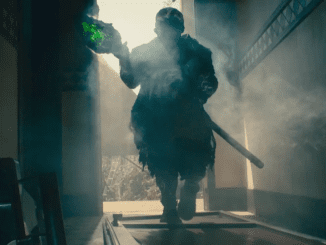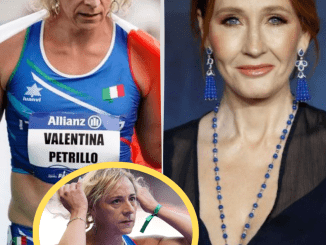Denzel Washington has become legendary not only for his acting prowess but also for his ability to swiftly and eloquently shut down interviewers who attempt to push narratives or agendas.
Throughout numerous media encounters, Washington has consistently displayed an uncanny ability to challenge loaded questions, redirect conversations towards meaningful topics, and stand firm in his beliefs without compromising his authenticity.
Here are ten unforgettable moments when Denzel Washington masterfully handled interviews, demonstrating wisdom, integrity, and razor-sharp wit.

1. Activism vs. Action
In one poignant moment, Denzel was asked if he considers himself an activist. His response immediately reset the narrative: “I’ve never been an activist. I’m active.”
He emphasized the distinction between identifying with a label and engaging in meaningful action. Washington further clarified, “I’m solution-based, not problem-stuck.”
This response perfectly encapsulates Washington’s approach to social issues—preferring concrete actions over symbolic labels, which resonated strongly with viewers.
2. Fake News Reality Check
Confronted with the topic of fake news during an interview, Denzel brilliantly flipped the script, noting the media’s responsibility to the public: “If you don’t read the newspaper, you’re uninformed.
If you do read it, you’re misinformed.” He criticized the media’s obsession with speed over accuracy, highlighting the urgent need for journalistic integrity: “It’s not about being first; it’s about telling the truth.”
His statement drew significant attention for its blunt honesty, becoming a memorable commentary on contemporary media culture.
3. Rejecting Victim Narratives
In discussing his role in the film “Fences,” a reporter suggested that Washington’s character was held back due to racial discrimination. Without missing a beat, Washington countered: “Maybe he just wasn’t good enough.”
He argued passionately against simplifying complex life outcomes solely to racial discrimination, encouraging a nuanced discussion about personal responsibility and systemic barriers.
This firm stance underscored Washington’s belief in examining every angle rather than immediately defaulting to a simplified narrative of oppression.
4. Acknowledging Progress
When pressed further on racial discrimination, Washington acknowledged historical challenges but insisted on recognizing progress: “We’re sitting in the Four Seasons talking about a movie—we wouldn’t be doing this in 1957.”
His response provided a necessary context, gently yet firmly rebuking pessimistic narratives that ignore tangible advancements.
This balanced view became emblematic of Washington’s pragmatic approach to discussing race and progress.
5. Hollywood Myths and Realities
In response to persistent questions about Hollywood’s stereotypes, Washington rejected the notion of Hollywood as a monolithic entity: “There’s no place called Hollywood.

I’m a part of the human race, not a system.” This statement dismantled simplistic perspectives on the entertainment industry, emphasizing individuality and personal accountability.
His refusal to let interviewers box him into stereotypical industry frameworks further solidified his reputation for independent thought.
6. Cultural Understanding Over Color
When asked why a Black director was necessary for certain films, Washington clarified that the issue is “not color; it’s culture.” He drew parallels between directors like Steven Spielberg and Martin Scorsese, highlighting cultural rather than racial differences as essential for storytelling authenticity.
His simple yet profound example—“We all know what it is when a hot comb hits your hair on a Sunday morning”—resonated deeply, showcasing his commitment to nuanced understanding.
7. Challenging Overseas Box Office Myths
Addressing the often-repeated claim that “Black movies don’t sell overseas,” Washington confidently dismissed this as an ever-changing excuse used by Hollywood executives.
“They used to say it didn’t sell here, then it did. They said it didn’t sell in Europe, then it did,” he observed. Washington framed these supposed limitations as opportunities to prove skeptics wrong, thus encouraging resilience against industry bias.

8. Oscars Diversity Controversy
Amid debates about Oscars diversity, Washington offered a straightforward response grounded in personal experience: “I’ve been the guy at the Oscars without my name being called…and when everybody thought they were going to call my name and didn’t.”
Rather than dwell on perceived injustices, he encouraged persistence and excellence, stating bluntly, “If you’re looking for an excuse, you’ll find one.”
His pragmatic stance encouraged aspiring artists to focus on their craft rather than external validation.
9. Navigating Political Discussions
Denzel tactfully navigated political questions without aligning himself with partisan politics. When questioned about border policies or specific presidential actions, he refocused the conversation towards unity and civic responsibility: “We as Americans need to put our elected officials’ feet to the fire.”
This unifying rhetoric consistently positioned him above divisive political squabbles, underscoring a broader message of national unity and personal accountability.
10. Personal Rumors and Life Lessons
When interviewers attempted to probe personal issues such as past alcohol use, Washington deflected with humor: “I’m in danger right now as we speak.” Yet he candidly redirected the conversation to more profound personal struggles, like anger stemming from family circumstances.

By openly addressing deeper underlying issues instead of tabloid-level accusations, he transformed the interaction into a powerful lesson on self-awareness and resilience.
Legacy of Integrity
Across these interviews, Denzel Washington’s responses have become legendary not just for their sharpness but also for their consistent integrity.
He refuses to play into media attempts to oversimplify complex issues or push superficial narratives, choosing instead to challenge assumptions, promote personal responsibility, and emphasize genuine progress.
His steadfast approach serves as a model for public figures navigating challenging dialogues, demonstrating the importance of authenticity, critical thought, and unwavering commitment to one’s core beliefs.


